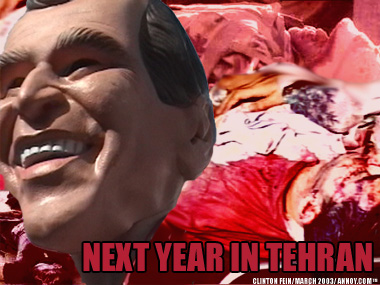 Do the nation's leaders have too much power to wage war? Many in Congress thought so during the 1930s, when Rep. Louis Ludlow of Indiana proposed a constitutional amendment to require a national referendum before Congress could declare war (unless U.S. territories were invaded). Do the nation's leaders have too much power to wage war? Many in Congress thought so during the 1930s, when Rep. Louis Ludlow of Indiana proposed a constitutional amendment to require a national referendum before Congress could declare war (unless U.S. territories were invaded).
Despite strong support in national polls, however, the Ludlow Resolution was narrowly defeated, 209 to 188, in no small measure due to opposition from President Franklin D. Roosevelt, who complained that such a requirement would keep presidents' hands tied in
conducting foreign policy.
But perhaps that would have been a good thing, suggests Robert Higgs, senior fellow at the Independent Institute and editor of THE INDEPENDENT REVIEW, in a new op-ed. Higgs suggests that, as it is, American political culture is too vulnerable to military adventurism initiated by the commander in chief.
Which characteristics make America especially vulnerable? "The essential components," writes Higgs, "are autocratic government, favorably disposed mass culture, public ignorance and misplaced trust, cooperative mass media, and political exploitation for personal and institutional advantages."
Consider, for example, the popular view (at least in high school civics classes) that elections are an effective check on presidential military excesses -- i.e., that a president who abuses his authority is discouraged from doing so because he won't get reelected. "Such a denouement occurred in 1920, 1952, 1968, and perhaps in 1992," writes Higgs. "Although on such occasions some observers always conclude that 'the system worked,' nothing could be farther from the truth, because by the time the voters repudiate the leader responsible for plunging the nation into senseless war, the damage has been done and cannot be undone."
Applying this analysis to the current White House, Higgs pulls no punches.
"To cover their tracks, the leaders of the War Party are relying on Machiavelli's wisdom, which tells them: 'It is necessary . . . to be a great pretender and dissembler; and men are so simple, and so subject to present necessities, that he who seeks to deceive will always find someone who will allow himself to be deceived.' Pretending to cut taxes, wildly increasing federal spending for nearly every species of boondoggle (thus buying off potential Democratic opponents in Congress), hiking the deficit and shoving the burden of servicing the resultant public debt onto future generations of taxpayers, they understand well the classic expression of political irresponsibility, 'apres nous le deluge.' Those high waters will be somebody else's problem then, and, if the future repeats the past, few of the unfortunate souls who find themselves immersed will look back and blame the true culprits." |



